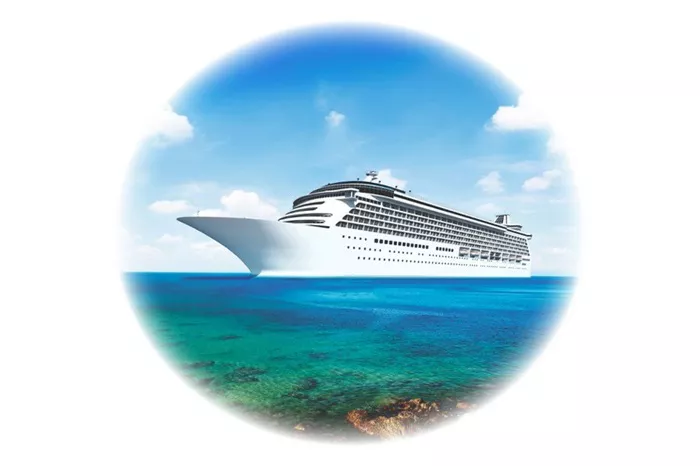Cruising is a popular vacation choice for many travelers, offering the opportunity to explore multiple destinations while enjoying luxurious amenities on board. However, just like any other type of travel, cruising comes with its own set of risks. This is where cruise insurance comes into play. Understanding what cruise insurance covers is essential for any traveler planning a cruise. In this comprehensive guide, we will explore the various aspects of cruise insurance, including coverage options, benefits, exclusions, and how to choose the right policy for your needs.
What is Cruise Insurance?
Definition of Cruise Insurance
Cruise insurance is a specialized type of travel insurance designed to cover the unique risks associated with cruising. It typically includes coverage for trip cancellations, medical emergencies, lost luggage, and other issues that may arise while on a cruise.
Importance of Cruise Insurance
Having cruise insurance is important for several reasons:
Financial Protection: In case of unforeseen events, cruise insurance can save you from significant financial losses.
Peace of Mind: Knowing you are covered for potential mishaps allows you to relax and enjoy your cruise.
Assistance Services: Many cruise insurance policies offer 24/7 assistance services, providing support when you need it most.
Coverage Options in Cruise Insurance
Trip Cancellation Insurance
One of the most important features of cruise insurance is trip cancellation coverage. This insurance reimburses you for non-refundable expenses if you must cancel your trip due to covered reasons, such as:
Illness or Injury: If you or a traveling companion becomes seriously ill or injured, you may need to cancel your cruise.
Death of a Family Member: The passing of an immediate family member often qualifies for trip cancellation.
Severe Weather: Natural disasters or severe weather conditions may lead to a cancellation.
Trip Interruption Insurance
Trip interruption coverage helps you recover costs if your cruise is cut short. This can occur due to:
Medical Emergencies: If you need to leave the cruise for medical reasons, you may be eligible for reimbursement.
Family Emergencies: Situations involving a family emergency may necessitate your return home.
Missed Ports: If your cruise itinerary changes unexpectedly, this coverage can help with additional expenses.
Medical Coverage
Medical coverage is critical for travelers, especially on international cruises. This may include:
Emergency Medical Treatment: Coverage for medical expenses incurred during the cruise.
Medical Evacuation: If you require emergency transport to a medical facility, this coverage can be invaluable.
Hospitalization: Costs associated with hospital stays during your cruise are often included.
Baggage Coverage
Baggage coverage protects you against loss, theft, or damage to your belongings while traveling. This can include:
Lost Luggage: If your luggage is lost during the trip, you may receive compensation to replace essential items.
Delayed Baggage: Coverage for expenses incurred due to delayed luggage, such as buying clothes or toiletries.
See also: Finding the Best Holiday Insurance: A Comprehensive Guide
Travel Delay Coverage
Travel delay coverage compensates you for additional expenses incurred due to delays. This may include:
Accommodation: If your cruise is delayed, this coverage can help with hotel expenses.
Meals: You may also receive reimbursement for meals during extended delays.
Cancel for Any Reason (CFAR) Insurance
Cancel for Any Reason (CFAR) insurance is an optional add-on that allows you to cancel your cruise for reasons not covered by standard policies. This typically reimburses a percentage of your prepaid costs, providing greater flexibility.
Adventure Sports Coverage
If you plan to engage in adventure activities during your cruise, such as snorkeling, zip-lining, or scuba diving, it’s wise to consider policies that include coverage for these activities, as they may not be covered under standard policies.
Benefits of Cruise Insurance
Financial Reimbursement
The primary benefit of cruise insurance is financial reimbursement for covered losses. This can alleviate the burden of unexpected expenses during your trip.
Emergency Assistance
Most cruise insurance policies offer emergency assistance services, including:
24/7 Support: Access to help anytime you face an emergency.
Concierge Services: Assistance with arranging medical care, transportation, or accommodation.
Flexibility
With various coverage options, cruise insurance allows travelers to customize their policies based on individual needs and preferences.
Peace of Mind
Having cruise insurance ensures you can enjoy your vacation without worrying about potential mishaps. This peace of mind is invaluable for travelers.
Exclusions in Cruise Insurance
While cruise insurance offers valuable protection, it also comes with exclusions that travelers should be aware of:
Pre-Existing Conditions
Many cruise insurance policies exclude coverage for pre-existing medical conditions unless you purchase a waiver or CFAR option.
Alcohol and Substance Abuse
Incidents related to alcohol or substance abuse are typically excluded from coverage.
Negligence or Recklessness
If you are injured or face issues due to your negligence or reckless behavior, your claim may be denied.
Travel Restrictions
Insurance may not cover cancellations or interruptions caused by government travel advisories or restrictions.
How to Choose the Right Cruise Insurance Policy
Assess Your Needs
Before purchasing cruise insurance, assess your individual needs:
Health Considerations: If you have existing health issues, prioritize policies that cover medical expenses.
Trip Cost: Consider the total cost of your trip when evaluating cancellation and interruption coverage.
Activities Planned: If you plan on engaging in high-risk activities, look for policies that offer adventure sports coverage.
Compare Policies
Take the time to compare different cruise insurance policies:
Coverage Options: Review what each policy covers and excludes.
Cost: Evaluate the premium in relation to the coverage provided.
Customer Reviews: Check reviews and ratings of insurers to gauge reliability and customer service.
Read the Fine Print
Always read the terms and conditions of your policy:
Exclusions: Understand the exclusions and limitations to avoid surprises when filing a claim.
Claim Process: Familiarize yourself with the claims process and required documentation.
Consult with an Insurance Agent
If you are unsure about your options, consulting with an insurance agent can provide clarity and help you find a policy that meets your needs.
Conclusion
Cruise insurance is an essential component of planning a safe and enjoyable cruise vacation. Understanding what it covers, its benefits, and how to choose the right policy can help you navigate the uncertainties of travel. By investing in cruise insurance, you ensure that you are protected against unforeseen events, allowing you to focus on making the most of your cruise experience. Always remember to read the fine print and consult with professionals to find the best coverage for your specific needs. Happy cruising!




















